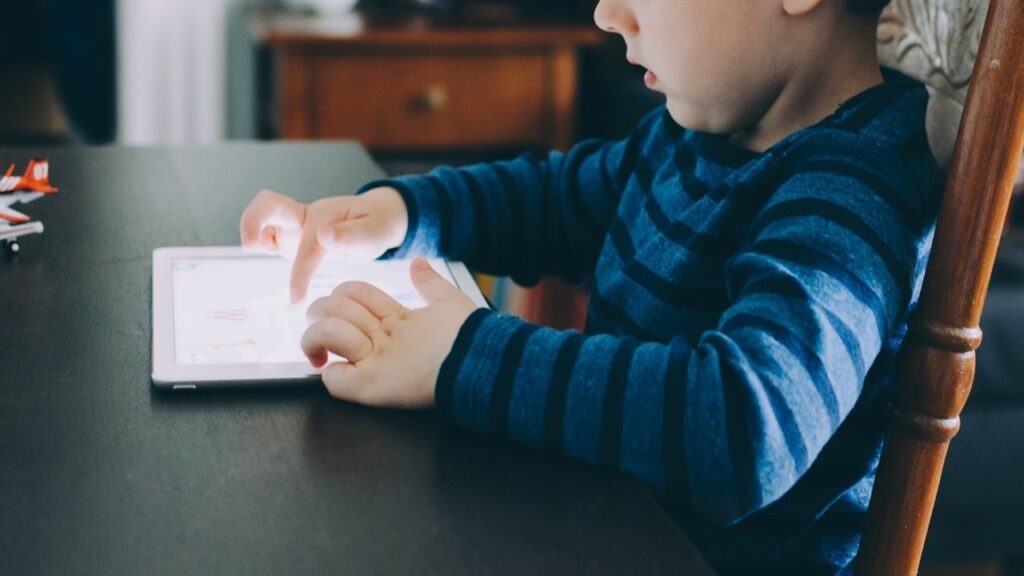The Five C’s to Follow When Monitoring Your Child’s Screen Time
Published August 10, 2020
By Brooke Grindlinger, PhD
Chief Scientific Officer
Not all screen time is created equal for kids and teens. As digital devices have swiftly displaced classrooms, playgrounds, and playdates, here are 5 practical tips from experts in digital media, parenting, and pediatrics to help parents navigate the daily screen time dilemma.

For parents that may be feeling guilty about the amount of time their kids are spending on digital devices during the COVID-19 pandemic, a recent New York Academy of Sciences panel convened experts in pediatrics, education, and digital media to weigh in on how best to use digital media in balance as a family, find quality content, set expectations around healthy use, and protect kids’ physical and mental health.
To optimize your child’s screen time, experts encourage parents to consider these five C’s:
1. Content
Engagement with high quality content that stokes kids’ curiosity, builds new skills, fuels the imagination, and avoids conflict situations, is more critical than the overall quantity of screen time.
2. Context
Don’t think of virtual school classes and video chats with remote family members as generic ‘screen time’. Reframe this as valuable ‘education time’ and ‘family time’. Experts also encourage co-viewing of media – the use of digital media with other family members – over solitary use.
3. Connection
It’s important that kids are connecting on a personal level while watching, reading or playing on a digital device. Are they engrossed, enlightened, or engaged in critical and strategic thinking?
4. Creativity
Does the medium allow your child to create new content – be it new art, photography, songs, or video? Creativity affords kids more ownership of their digital learning experience.
5. Conversation
While parents cannot participate in every moment of their child’s digital experience, they can ask their children about their experience after the fact. Follow-up with your child at dinner time or bedtime and have them tell you what you – as a parent – missed in the most recent episode or game of what your child watched or played.
Finally, the experts reinforced that only you can know what activities create meaning for your family, support your family’s goals, and help family members cope during challenging times.
This article was originally published on LinkedIn.
Also read: 5 Reasons Scientific Prizes Are Good For The World
